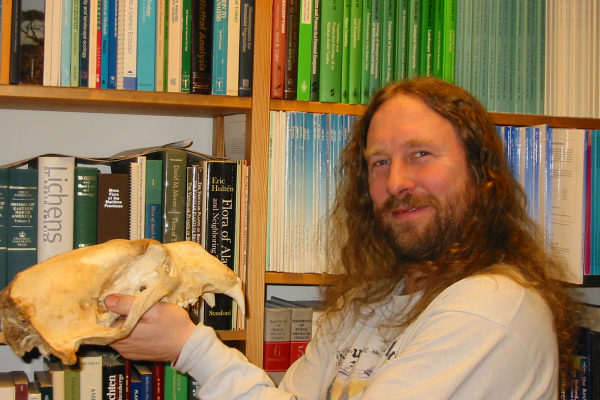
It is assumed that retreating sea ice in the Eurasian Arctic will accelerate hydrocarbon development and associated tanker traffic along Russia’s Northern Sea Route. However, oil and gas extraction along the Kara and Barents Sea coasts will likely keep developing rapidly regardless of whether the Northwest Eurasian climate continues to warm. Less certain are the real and potential linkages to regional biota and social-ecological systems. Reindeer nomadism continues to be a vitally important livelihood for indigenous tundra Nenets and their large herds of semi-domestic reindeer. Warming summer air temperatures over the NW Russian Arctic have been linked to increases in tundra productivity, longer growing seasons, and accelerated growth of tall deciduous shrubs. These temperature increases have, in turn, been linked to more frequent and sustained summer high-pressure systems over West Siberia, but not to sea ice retreat. At the same time, winters have been warming and rain-on-snow (ROS) events have become more frequent and intense, leading to record-breaking winter and spring mortality of reindeer. What is driving this increase in ROS frequency and intensity is not clear.
Recent modelling and simulation have found statistically significant near-surface atmospheric warming and precipitation increases during autumn and winter over Arctic coastal lands in proximity to regions of sea-ice loss. During the winter of 2013-14 an extensive and lasting ROS event led to the starvation of 61,000 reindeer out of a population of ca. 300,000 animals on Yamal Peninsula, West Siberia. Historically, this is the region’s largest recorded mortality episode. More than a year later, participatory fieldwork with nomadic herders during spring-summer 2015 revealed that the ecological and socio-economic impacts from this extreme event will unfold for years to come. There is an urgent need to understand whether and how ongoing Barents and Kara Sea ice retreat may affect the region’s ancient and unique social-ecological systems. If sea ice retreat is contributing to increasingly severe ROS events and high reindeer mortality, it has major implications for the future of reindeer nomadism. At the same time, rapid oil and gas infrastructure expansion has strong potential to limit the movement of large herds during extreme events.
Research Professor Bruce Forbes, Arctic Centre, University of Lapland, leads the Global Change Research Group. A geographer by training, he has been conducting field research annually on human-environment relations and land cover/land use change in Arctic regions for 30 years, working in Alaska, the Canadian High Arctic, eastern and western Siberia, and Fennoscandia. Specializing in northern Russia since Soviet times, Prof. Forbes’s participatory field research involving local stakeholders focuses on northwest Eurasian tundra ecosystems. Recent interdisciplinary topics include: (1) resilience in social-ecological systems in cooperation with Nenets and Sámi reindeer herders; (2) social and environmental impacts of hydrocarbon extraction; and (3) growth of deciduous shrubs and relation to climate change and reindeer herbivory. He has contributed to major assessments including the IPCC 5th Assessment Report (2014) and is a lead author for the Arctic Human Development Report II (2014). He holds adjunct positions as Institutional Fellow, Institute of Arctic Studies, Dartmouth College, and Research Scientist, Institute of Arctic Biology, University of Alaska, Fairbanks.
